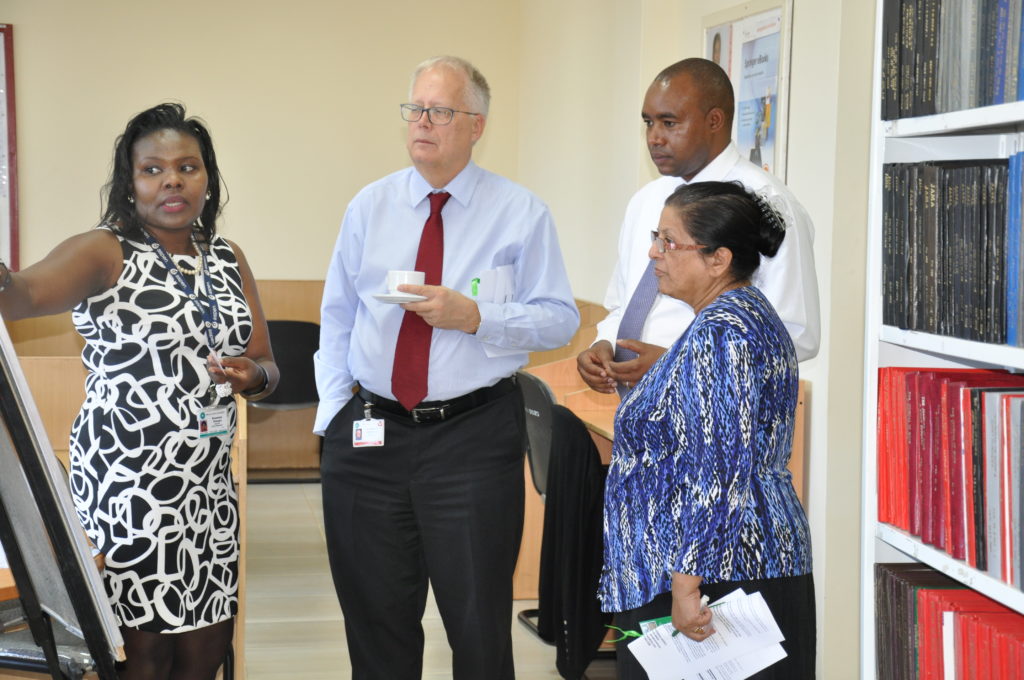A journey to knowledge
Rosemary Thiongo is a librarian at the Faculty of Sciences of the Aga Khan University in Nairobi, Kenya.

Rosemary Thiongo bought her first ever car in order to visit the library. At the time, she was working full-time as a librarian and studying Library & Information Studies in Nairobi. Her course taught manual operational concepts – focusing on catalogue cards rather than VPNs.
Rosemary understood the power of digital even then. She had heard of an online course based in South Africa called Library Information Technology. But she had no access to the internet at home.
So she asked her university library if, after her full day’s work, she could stay late to work on the online course. For two or three hours after each work day, Rosemary would sit alone in the library, learning about exciting technological advances in information studies.
It meant coming home late at night, so public transport wasn’t an option. And so Rosemary bought her first car.
In her role as Librarian for Aga Khan University in Nairobi, Rosemary uses technology every day. Aga Khan University is a medical institution, and she knows the challenges that this presents.
“I feel that we are dealing with the lives of other human beings”, she says. “That makes it so important that they have access to the latest information.”
Making sure that the nurses and doctors have that access means that Rosemary needs to advocate. Her secret to successful advocacy: get the evidence.
So how does she do it? Rosemary is in continuous communication with her users, setting up suggestion boxes, regular orientation sessions and online surveys. She has also automated the library’s usage tracking system, to understand how, when and which resources in the library are most used. This means that when she advocates for change, she knows that the users are behind her.
This evidence base has allowed her to work for user-focused change in the library. Rosemary heads the Marketing and Promotion working group, and is also passionate about reaching out to the community.
“I never felt that librarianship was about sitting in a room and waiting for users to come to you”, she says. “I always wanted to reach out.”
Many of her improvements have focused on access to the library. Based on user input, Rosemary has made the case for expanding opening hours, video orientation options and regular newsletters. She has even ensured that computers are available outside the library, so that students have the 24-hour access that she never did.
These technological advances have been supported through competitions. Aga Khan University has won funding through several national library competitions, including for best academic library and best overall library. In addition, they have also received electronic resources support from INASP via the KLISC consortium.
When asked about her biggest achievement, Rosemary points to the first virtual portal network at Aga Khan University. As one of the principal supporters of the network, Rosemary had the opportunity to name it. She chose Search, Access, Find And Retrieve Information, or SAFARI. Safari is the Swahili word for journey.
And nobody needs to buy a car to get there.
This story is part of the Information in Action case study collection. Read more stories from Research4Life users.





